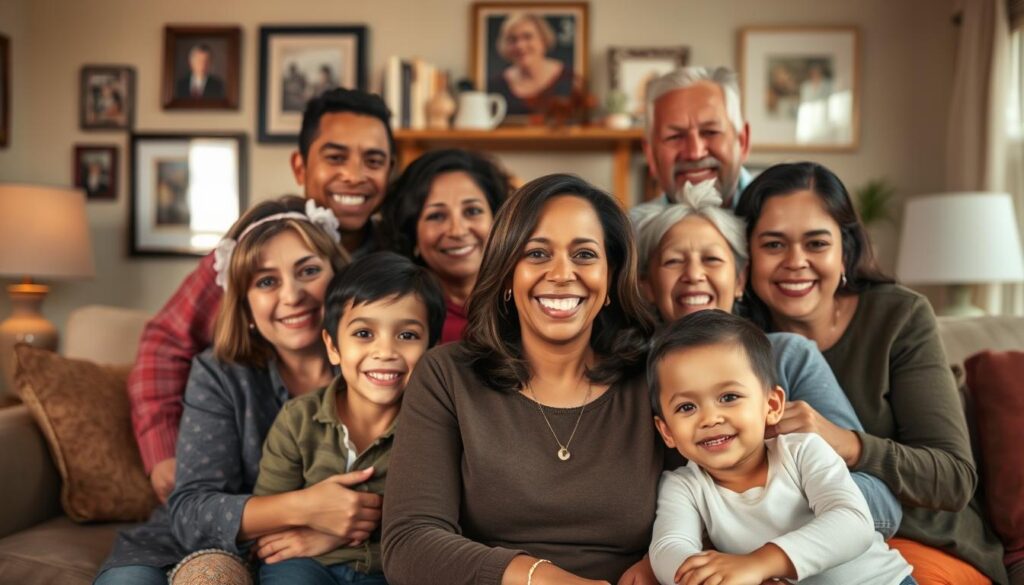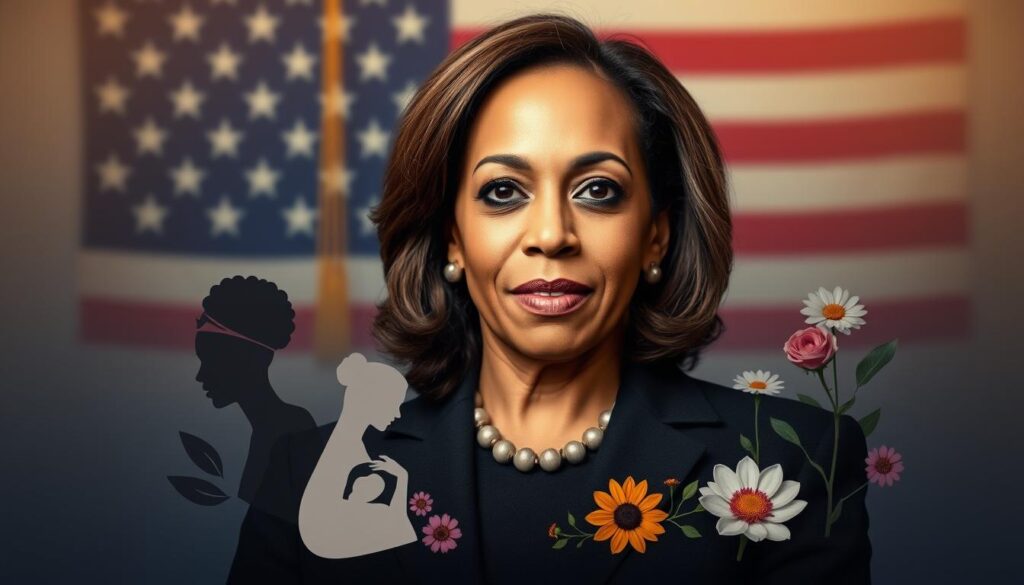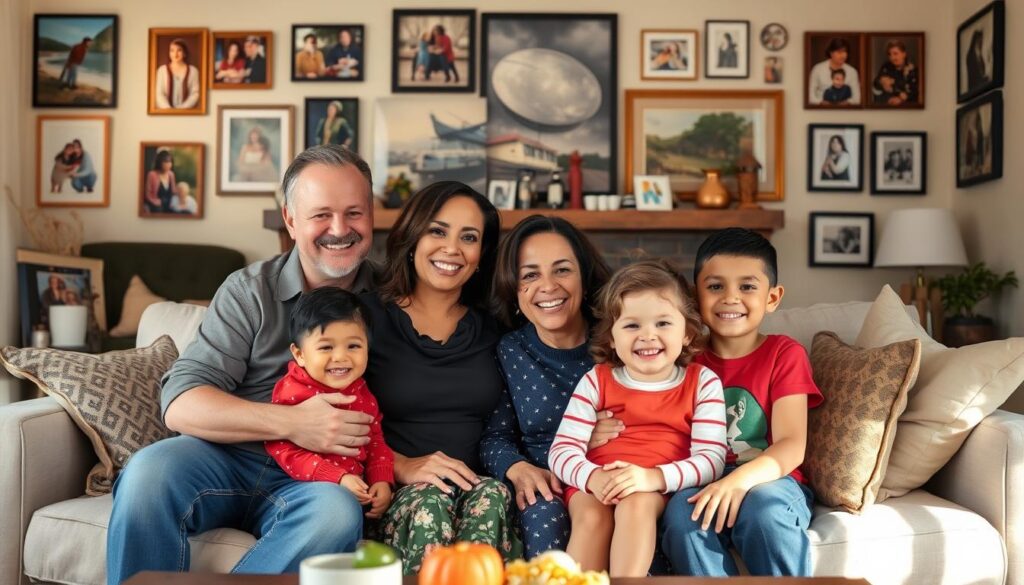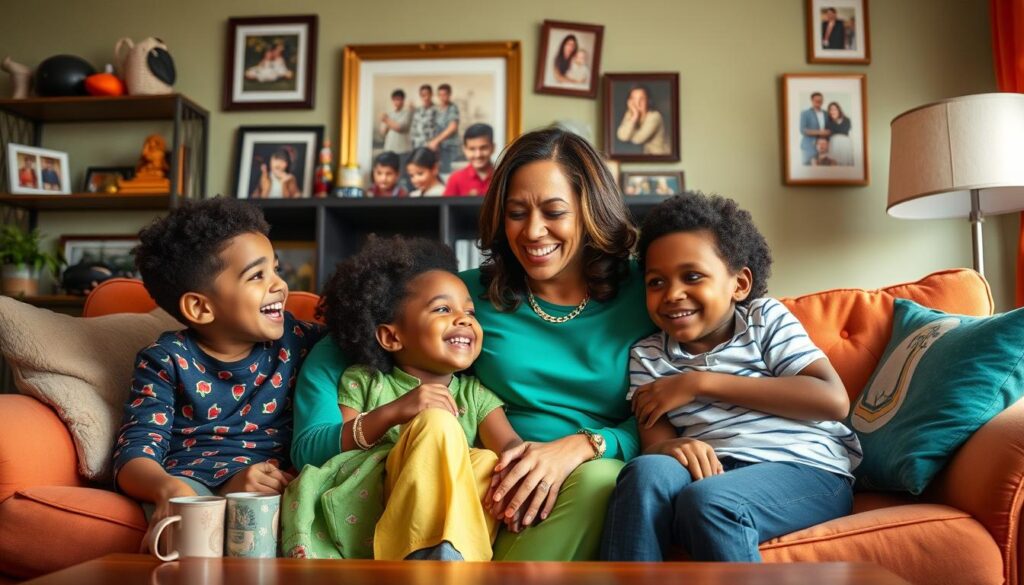In our exploration of the question, is Kamala Harris a mother, we find that her family dynamics extend beyond biological ties. While Kamala Harris has no children of her own, she wholeheartedly embraces her role as a stepmother to Ella and Cole, the children of her husband, Doug Emhoff. This relationship shapes her upbringing and influences her perceptions on motherhood, showcasing her values and commitment to family life amidst a demanding political career.
In examining Kamala Harris’s personal life, we recognize that the essence of Kamala Harris motherhood transcends traditional definitions. The unique title of “Momala,” affectionately given by her stepchildren, reflects her deep engagement in their lives. Through this lens, we can better understand Harris’s principles, parenting style, and how they intersect with her responsibilities as the first female vice president of the United States.
Understanding Kamala Harris’s Personal Life
Kamala Harris’s personal life significantly shapes her public persona and approach to her duties. Born on October 20, 1964, in Oakland, California, to immigrant parents, her upbringing emphasizes the values of family and community. The influence of her mother, Shyamala Gopalan Harris, a prominent scientist and advocate for social justice, has been particularly pivotal in molding Kamala’s views on public service and advocacy.
We recognize the cultural heritage Kamala holds dear. With Indian and Jamaican roots, she cherishes the diversity and richness of her family background. This heritage influences her interactions, not only within her kamala harris family but also with the broader community. The teachings imparted by her mother resonate deeply within her personal beliefs, instilling a strong moral code and a sense of compassion. Even after her mother’s passing in 2009, Kamala continues to honor Shyamala’s legacy, carrying her values into her political career.
Kamala Harris’s personal life extends beyond her heritage to her marriage with Douglas Emhoff in 2014, and her role as a stepmother to his children, Ella and Cole Emhoff. These relationships embody the essence of family and highlight the importance of nurturing bonds amidst a busy political career. By embracing these roles, she further exemplifies how her experiences contribute to her identity as a leader and a member of her community.
- Shyamala Gopalan Harris was a world-renowned scientist.
- Kamala Harris became the first woman and the first Black American to hold the vice presidency.
- She actively integrates her family’s values into her work as a public figure.
Kamala Harris’s Family Background
In exploring the roots of kamala harris family, we discover a rich tapestry woven from diverse influences and experiences. Kamala Harris was born in 1964 to Donald J. Harris, an esteemed Jamaican-American economist, and Shyamala Gopalan, a prominent Indian-American biomedical scientist. Their marriage began at the University of California, Berkeley, where their separate academic pursuits intersected.
The family dynamic shifted following the divorce of Kamala’s parents when she was five. Despite the separation, both parents remained active in the lives of Kamala and her younger sister, Maya. Their mother, Shyamala, played a pivotal role in shaping the sisters’ identities and instilling values grounded in social justice and cultural pride. Kamala has often reflected on the rigorous education and strong emphasis on self-determination that her mother imparted.

The impact of Shyamala’s work as a cancer researcher resonates throughout Kamala’s own beliefs and political journey. Gopalan’s dedication to civil service, coupled with the family’s multicultural background, provided an insightful lens through which Kamala viewed the world. This multifaceted upbringing equipped her to navigate complexities within her own diverse family today.
As we consider kamala harris children, her current family unit illustrates a blend of backgrounds and experiences. She married Douglas Emhoff, a law professor and entertainment attorney, and welcomed his children, Cole and Ella Emhoff, into her life. Kamala’s unique upbringing allows her to connect various strands of identity and relationship dynamics, making her family life reflective of her broader values and experiences.
The Meaning of Motherhood for Kamala Harris
Kamala Harris’s view of motherhood transcends conventional definitions. Although she does not have biological children, her role as a stepmother conveys a deep commitment to nurturing family bonds. This dedication is illustrated by her choice to embrace the term Momala, a title that aligns with her dynamic relationship with her husband Doug Emhoff’s children, Cole and Ella.
In the context of kamala harris motherhood, the emphasis lies on the active, emotional role she plays. She values her engagement with Cole and Ella through shared experiences like Sunday dinners, where each family member contributes uniquely. Cole sets the table while selecting music, Ella showcases her culinary skills with desserts, and Doug takes on the role of sous-chef, allowing Kamala to assume her position as the primary cook. These shared moments reflect a nurturing environment that reinforces her commitment to family.
Harris also navigates the complexities surrounding motherhood in the political arena. As a Black woman of immigrant descent, she faces unique challenges in addressing societal expectations and narrative-driven pressures related to women’s maternal roles. The conversation surrounding kamala harris parenting often intersects with broader political issues, highlighting the challenges that women, especially Black women, experience in both personal and public domains, particularly given the troubling statistics around maternal mortality and healthcare access.
The societal discourse on motherhood can be harsh, particularly within a political landscape that often reduces women’s value to their reproductive choices. Yet, Kamala Harris stands as a vibrant example of adaptive family dynamics, embodying a modern interpretation of what it means to be a mother-like figure.
| Aspect | Kamala Harris’s Family Role | Societal Expectations |
|---|---|---|
| Title | Momala | Stepmom |
| Engagement | Active involvement in family life | Expectation of traditional maternal roles |
| Focus Areas | Inclusive family dinners | Child-rearing narratives |
| Challenges | Racial and gender biases | Political scrutiny |
Is Kamala Harris a Mother? Unveiling the Truth
The question, is Kamala Harris a mother, sparks interest in her unique position as a stepmother within a prominent political framework. She plays a significant role in the lives of her two stepchildren, Cole and Ella Emhoff. Leading a busy professional life does not diminish her commitment to nurturing emotional connections in her family.
Kamala Harris embraces her role as a figure of love and support, a title she affectionately coined as ‘Momala’ in 2019. This term highlights her approach to step-parenting, where she actively seeks to create a sense of belonging and family unity among her kids. Her parenting strategies reflect an understanding of the importance of combining her public responsibilities with her personal life.
Underpinning her parenting is the belief that the bonds developed through care and attention contribute significantly to the well-being of her children. The public often witnesses glimpses of this strong family dynamic during various appearances and events. As we delve into her maternal journey, the narrative evolves, revealing that Kamala Harris does not just navigate the complexities of professional politics but also embodies the warmth and nurturing spirit found in family life.

In conclusion, as we answer the question, is Kamala Harris a mother, it becomes clear that her journey reflects the intricate balance of motherhood, step-parenting, and a political career. Her experiences hold significant relevance in today’s discussions about what it means to be a modern mother, especially within the spotlight of public life.
Kamala Harris’s Role as a Stepmother
Kamala Harris made history as the first stepmother to become America’s vice president. When she married Doug Emhoff in 2014, she embraced a new role as a stepmother to his children, Cole and Ella. This dynamic addition to her family has greatly influenced her approach to parenting. Our exploration of this aspect highlights how the integration of her family influences her relationship with her stepchildren, fostering a unique parenting experience.
Embracing the Title of ‘Momala’
Kamal Harris affectionately uses the title ‘Momala,’ symbolizing her deep bond with her stepchildren. This term encapsulates the love and respect shared within her family unit. Cole, now 29, and Ella, aged 25, have thriving careers—Cole in entertainment production at Plan B Entertainment and Ella following her passion in fashion after graduating from Parsons School of Design. The close-knit nature of the kamala harris family is evident as they support each other in both personal and professional endeavors.
The Influence of Family Dynamics on Her Parenting
The family dynamics of Kamala Harris play a significant role in shaping her parenting style. We see how she navigates the challenges and joys of being a stepmother while balancing her political career. Participating in public life, the family often demonstrates the values instilled by Kamala, reflecting her commitment to inclusivity and empowerment. Her experiences as a stepmother of kamala harris kids have influenced her perspective, allowing her to draw on the strengths of a diverse family background.

| Name | Age | Occupation |
|---|---|---|
| Cole Emhoff | 29 | Entertainment Production |
| Ella Emhoff | 25 | Fashion Designer |
Kamala Harris’s Children: Who Are They?
Kamala Harris became a stepmother to two wonderful children, Ella and Cole Emhoff, when she married Doug Emhoff in 2014. This blended family narrative is a significant part of Harris’s personal life and reflects her values and commitments.
Cole Emhoff, born on September 15, 1994, graduated from Colorado College in 2017 with a degree in psychology. He currently works at Plan B Entertainment and is making his mark in the film industry. Cole married Greenley Littlejohn in October 2023, with Kamala Harris officiating the ceremony. This event illustrated the strong family bonds that Harris cherishes.
On the other hand, Ella Emhoff, born in 1999, has emerged as a rising star in the modeling industry. After graduating from Parsons School of Design in May 2021, she signed with IMG Models Worldwide and started a career in fashion and design. Her notable achievements include modeling for high-profile brands like Balenciaga and hosting the Soft Hands Knitting Club in New York City. Ella gained attention for her fashion choices, notably the Miu Miu coat she wore to President Biden’s swearing-in ceremony in 2021. In 2022, she was named one of Harper’s Bazaar’s icons of the year, showcasing her influence in the fashion world.

Both Cole and Ella Emhoff have played essential roles in Kamala Harris’s life, influencing her perspective on family and parenting. Their accomplishments and engagements embody the essence of her experience as a stepmother. Harris has often expressed her love for her kamala harris children, describing them as her “endless source of love and pure joy” in a 2019 essay for Elle. This bond reflects the values she upholds in her family dynamics.
Kamala Harris’s Parenting Style
Kamala Harris’s parenting style reflects a delicate blend of diverse family cultures and responsibilities. Growing up in a multi-ethnic household, she learned the value of embracing her Indian and Jamaican heritage, which she now integrates into her family’s upbringing. This cultural richness enriches her approach to parenting, allowing her to demonstrate strong kamala harris family values through daily practices.
Blending Family Cultures
Through her marriage to Doug Emhoff, Kamala has expanded her family dynamics, becoming a stepmom to his two children, Cole and Ella. This union represents a merging of traditions and values, fostering a unique family atmosphere. In her personal essay for Elle, she shared her experiences and emphasized the importance of patience in building relationships with her stepchildren. She waited to meet them until the right moment, showcasing her commitment to establishing a solid foundation.
Finding Balance Between Work and Family
Navigating a high-profile political career complicates but does not overshadow her parenting. Kamala acknowledges missing important family events due to work commitments, a challenge many working parents face. Yet, she prioritizes family bonding, exemplified by their cherished Sunday dinners. This tradition serves as a cornerstone of their family life, reinforcing the need for consistent family time. The affectionate nickname “Momala,” bestowed by her stepchildren, reveals the deep connection and love within their blended family. As Kamala Harris engages in her public life, the grounding influence of her family remains central, epitomizing the essence of kamala harris parenting.
| Family Values | Practices |
|---|---|
| Cultural Embrace | Integrating Jamaican and Indian heritage into family life |
| Relationship Building | Patience before engaging with stepchildren |
| Family Connections | Regular Sunday dinners |
| Support Systems | Family as a grounding force during political career |
| Affectionate Bonds | Nurturing close relationships with stepchildren |
Kamala Harris’s Family Values and Principles
Kamala Harris’s family has profoundly influenced her values and principles. Growing up with a mother who was a pioneering cancer researcher and an immigrant from India, we see how these experiences shaped her worldview. Shyamala Gopalan instilled in her children a deep understanding of resilience and hard work. This immigrant background infused the notion of perseverance into Kamala Harris’s values, as she adheres to the principles of respect and commitment to social justice.
Her father, Donald Harris, a prominent economist, also contributed to this foundation. His teachings complemented the lessons from Shyamala, encouraging Kamala to engage actively with her community in a manner that reflects her strong family values. Together, they cultivated an environment rich in diversity and learning, showcasing what a unified family can achieve.
Harris often speaks about her upbringing in Berkeley and the challenges she faced, such as being bused to a predominantly white school. Those experiences underscore her commitment to equity and inclusion, illustrating how her family values have been woven into her political life.
In the lens of her current role as Vice President, we notice how these values manifest in her actions. Kamala Harris continually prioritizes the importance of family, mirroring her own experiences and the legacy of her parents. Through public service and advocacy, she emphasizes that a strong, compassionate family unit can uplift communities and contribute toward societal betterment.
| Family Member | Background | Influence on Values |
|---|---|---|
| Shyamala Gopalan | Cancer researcher, immigrant from India | Resilience, hard work, social justice |
| Donald Harris | Economist from Jamaica | Encouragement of diversity, active community engagement |
| Kamala Harris | Vice President, former Attorney General | Commitment to equity, family-focused leadership |
Public Perception of Kamala Harris as a Mother
The public perception of Kamala Harris motherhood reflects a complex interplay of views influenced by her political standing and background. Many view her as a strong maternal figure representing modern definitions of parenting, embracing her role as a stepmother while navigating public expectations. Supporters highlight her ability to balance her responsibilities as a vice president and as a mother, recognizing the challenges that come with being a woman in a prominent political position.
Critics often downplay her motherhood role, focusing instead on her political ambitions. This narrative frequently centers on how motherhood operates within the demanding landscape of leadership. Some media outlets have scrutinized her parenting choices and family dynamics, further complicating the public perception surrounding her. Despite the criticism, Kamala Harris successfully manages to maintain a connection with her family, which resonates positively with many voters.
Statistics regarding female representation in politics add context to this conversation. Only about a quarter of senators and state governors in the United States are women. This underscores the significance of Harris’s position not only as a political leader but also as a mother in a male-dominated arena. The perception that a woman can juggle both roles continues to evolve, with many followers appreciating her efforts in fostering a work-life balance.
Kamala Harris’s journey reflects broader societal shifts. Conversations around electing women, especially those of color, have gained traction. Recent polls indicate approval ratings for Harris at 50%, suggesting growing recognition of her contributions as both a leader and a mother. As this dialogue progresses, it becomes evident that public perception of her motherhood remains a vital aspect of understanding her political identity.
Challenges Faced as a Mother in Politics
Being a political leader comes with its unique set of challenges, particularly for Kamala Harris. As a prominent figure, she faces intense media scrutiny regarding her family life and parenting. The public’s perception of her parenting style and family dynamics often becomes a focal point for discussion, leading to pressures that many working mothers can relate to.
Media Scrutiny of Her Family Life
Kamala Harris’s position as the first woman, Black American, and South Asian American Vice President amplifies the gaze of the media. This heightened attention sometimes crosses into intense scrutiny of her family and personal choices. Critics have addressed her decision to not have children, significantly engaging with the narratives around motherhood in relation to political leadership.
According to research, emotional intelligence skills are essential for children to thrive. Resilience, a trait emphasized by parenting experts like Amy Morin, is integral; effective parenting fosters children who can cope with challenges and peer pressures. As we reflect on Kamala Harris’s journey, it becomes apparent that being a mother, or in her case, a stepmother to her husband’s children, provides unique rewards and tribulations within her busy life.
| Aspect | Impact of Media Scrutiny |
|---|---|
| Public Perception | Challenges related to her family dynamics and choices. |
| Parenting Approach | Questions raised regarding her parenting style amidst political duties. |
| Social Media Engagement | Over 4,000 reposts and nearly 10,000 likes criticizing her family choices. |
| Bias in Politics | Highlighting societal biases against childless women leaders. |
As the narrative surrounding Kamala Harris unfolds, it illustrates the intricate balance between fulfilling her duties as a public servant and nurturing her family. This dual role highlights the complexities of motherhood, particularly under the lens of extensive media scrutiny.
Conclusion
In summary, our exploration of Kamala Harris illustrates that she embodies a modern interpretation of motherhood, which extends beyond traditional definitions. Is Kamala Harris a mother? While she does not have biological children, her role as a stepmother is pivotal in understanding her commitment to family. Known affectionately as ‘Momala,’ she fully embraces her stepchildren, Cole and Ella, and prioritizes nurturing their growth and well-being.
Through her position in public life, we see how Kamala Harris navigates the complexities of family while upholding her professional responsibilities. Her dedication to her stepchildren and connection to her family highlights the essence of Kamala Harris’s family values. This exploration not only sheds light on her personal life but encourages a broader dialogue about the evolving concept of motherhood in today’s society.
As we reflect on Kamala Harris’s journey, we are invited to reconsider conventional notions of motherhood. Her experience serves as an inspiring example of how blended families and strong bonds can enrich our communities, ultimately paving the way for future generations to thrive in diverse family dynamics.